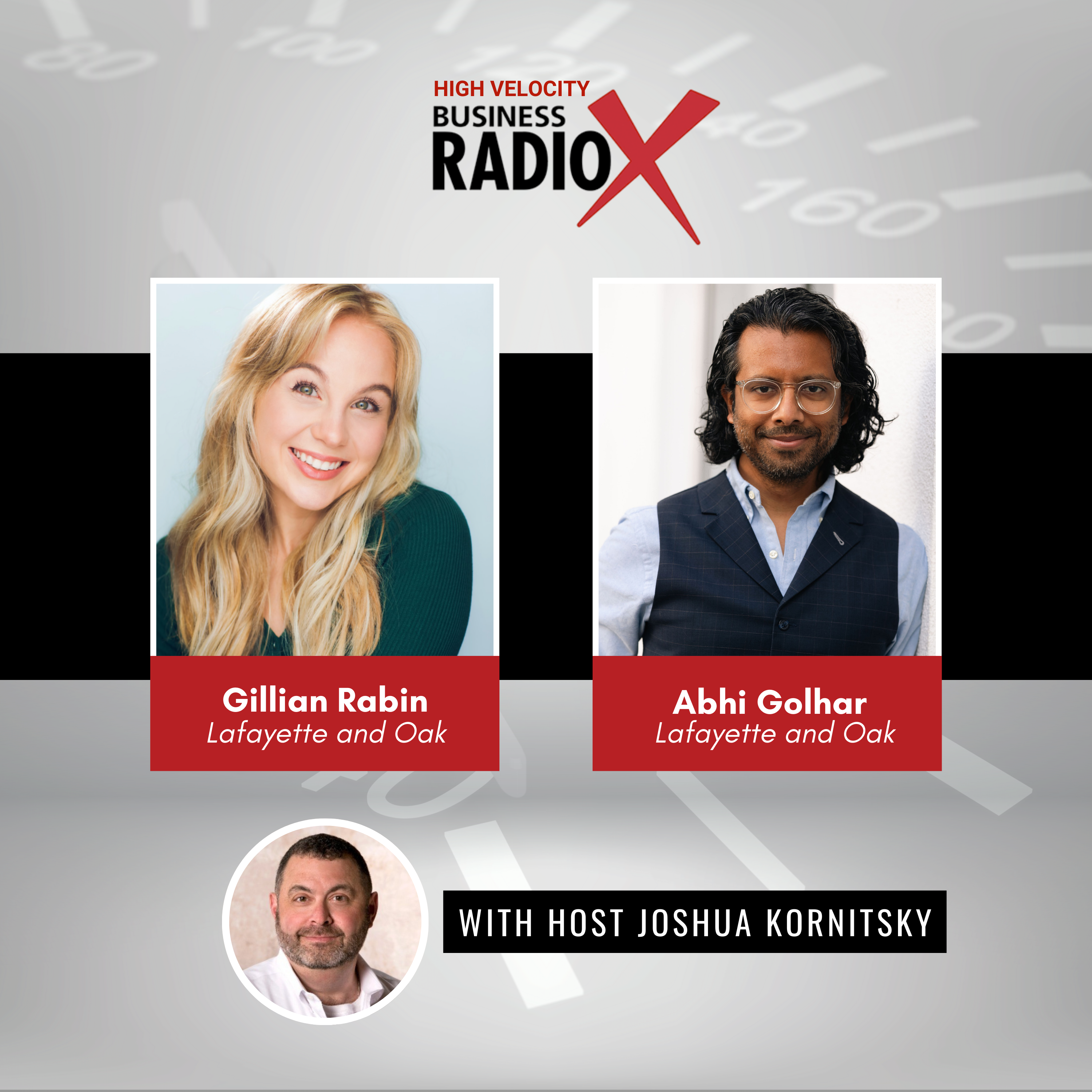
In this episode of High Velocity Radio, Joshua Kornitsky talks with Abhi Golhar and Gillian Rabin from Lafayette and Oak about scaling businesses from $5 million to $50 million in revenue. They discuss the importance of having the right leadership, a compelling business narrative, and tailored capital strategies. The conversation covers common misconceptions about growth, the pitfalls of sudden funding, and the need for honest self-assessment. Lafayette and Oak’s approach emphasizes building strong teams, clarifying goals, and crafting stories that attract investment, guiding business owners through sustainable growth and successful exits.

 As the founder of Lafayette & Oak and Managing Partner of Meridian 84, Abhi Golhar brings deep experience guiding businesses through growth, transition, and transformation.
As the founder of Lafayette & Oak and Managing Partner of Meridian 84, Abhi Golhar brings deep experience guiding businesses through growth, transition, and transformation.
His journey, from wins to wipeouts, has shaped a leadership style grounded in resilience, strategic precision, and a relentless pursuit of excellence. Abhi believes big breakthroughs begin with self-doubt and that with the right structure and strategy, any challenge can become a launchpad. He doesn’t just teach growth, he builds it. And he helps others do the same.
Connect with Abhi on LinkedIn.
 Gillian Rabin is a valedictorian graduate of Oglethorpe University, holding dual B.A.s in Rhetoric & Communications and Theatre.
Gillian Rabin is a valedictorian graduate of Oglethorpe University, holding dual B.A.s in Rhetoric & Communications and Theatre.
Gillian has driven growth for a global network of Executive MBAs, nurtured partnerships across PE, VC, and corporate landscapes, and orchestrated branding campaigns with measurable impact.
As an award-winning filmmaker, she brings a compelling narrative edge; bridging storytelling and capital to help Lafayette & Oak connect exceptional businesses with the investment and clarity they need to scale.
Connect with Gillian on LinkedIn.
About Your Host
 Joshua Kornitsky is a fourth-generation entrepreneur with deep roots in technology and a track record of solving real business problems. Now, as a Professional EOS Implementer, he helps leadership teams align, create clarity, and build accountability.
Joshua Kornitsky is a fourth-generation entrepreneur with deep roots in technology and a track record of solving real business problems. Now, as a Professional EOS Implementer, he helps leadership teams align, create clarity, and build accountability.
He grew up in the world of small business, cut his teeth in technology and leadership, and built a path around solving complex problems with simple, effective tools. Joshua brings a practical approach to leadership, growth, and getting things done.
As a host on Cherokee Business Radio, Joshua brings his curiosity and coaching mindset to the mic, drawing out the stories, struggles, and strategies of local business leaders. It’s not just about interviews—it’s about helping the business community learn from each other, grow stronger together, and keep moving forward.
Connect with Joshua on LinkedIn.
![]() This transcript is machine transcribed by Sonix
This transcript is machine transcribed by Sonix
TRANSCRIPT
Intro: Broadcasting live from the Business RadioX studios in Atlanta, Georgia. It’s time for High Velocity Radio.
Joshua Kornitsky: Welcome back to High Velocity Radio. My name is Joshua Kornitsky. I’m a professional implementer of the entrepreneurial operating system and your host here today, I have with me two wonderful guests that I’m grateful to have. With me in studio are Abhi Golhar of really a global presence, and I’ve also got Gillian Rabin here with me from Lafayette and Oak. And we’re going to talk a lot about what makes business run and grow and scale. Welcome, guys.
Gillian Rabin: Thank you so much.
Joshua Kornitsky: It’s nice to have you. I’m not even going to run through the introduction. We’re just going to jump right in and have a discussion.
Joshua Kornitsky: Because at the end of the day, what started our dialog earlier before we ever hit record was the simple idea of of, uh, be asked the question, what makes a business go from 5 to 50 million? And I said, mostly wishful thinking. Um, no. The reality of of what gets a business to grow isn’t an easily answered question, but the reality of it is it takes organization. It takes the right people in the right seats. It takes a plan. But it also takes Jillian, somebody who understands and can translate the the business’s story to the market.
Gillian Rabin: Yes.
Joshua Kornitsky: Right. And folks that that understand why investing in this organization, investing in this company might be a good thing for them.
Joshua Kornitsky: So let’s talk. How do we get there? We’re here’s here’s our company. We sell $5 million worth of widgets a year.
Abhi Golhar : Three things.
Joshua Kornitsky: Okay.
Abhi Golhar : People, do you need the right operator, CEO, C-suite people.
Joshua Kornitsky: Okay.
Abhi Golhar : The second the narrative and the third capital.
Joshua Kornitsky: Okay.
Abhi Golhar : And it’s not capital in the traditional sense of private equity. Or I’m going to go to Bank of America and get a loan for $5 million. It’s very unlikely that will that will happen. But it’s those three things.
Joshua Kornitsky: Well, I want to I want to take that apart a piece at a time. Right. And I don’t want to necessarily go in order, because the first question I want to have is, okay, so here’s your $5 million widget company. Here’s $5 million wherever the source is from. What does an average company do with a sudden influx of financing? And I’m asking I don’t know what what happens when you hand a $5 million loan, regardless of of the details of it? Here’s 5 million in funding. What happens to a company that that has no plan?
Gillian Rabin: Well, they have to make a plan. Um, and I think you start with that story. A plan is as arbitrary until there’s a through line to that plan, and that through line comes through with a compelling narrative. And it has to not just be a story. Anyone can can write a compelling story, but does it make sense for what you’re doing and what you’re selling and why you’re selling? And I think in today’s world, you have so many. We’re constantly there’s an onslaught of compelling narratives that are always trying to grab our attention. And so it’s figuring out who your audience is and really capturing what it is that you’re doing, why it is that you’re selling, what you’re selling, and who you are. Because a lot of people do gravitate towards a mission that is relatable, that is a human centric mission. Um, and finding those gaps in the market and kind of capitalizing on those. So why does your product, why would someone need a widget right now? And it’s kind of figuring that out.
Joshua Kornitsky: So how do you how do you learn to build that narrative.
Gillian Rabin: Through trial and error. I mean, you have to. I think I think it’s it’s getting the right people to help you. Like Lafayette and Oak. But if you have. But if you’re just doing it on your own, I think it’s brainstorm sessions and refining. It’s testing and refining. It’s like a B marketing, right? But having operators that have experience in that is incredibly helpful.
Joshua Kornitsky: Well, so you mentioned Lafayette and Oak, I mentioned Lafayette. No. Tell us a little bit about Lafayette Oak. What what what role do they fulfill in the market?
Abhi Golhar : Yeah, actually, to your to your initial point, if you just get an influx of $5 million and you don’t have a plan around it, you fail.
Joshua Kornitsky: And that’s to my experience. Yeah. That’s it. It is. It is money from heaven, which is great, but money from heaven in the hands of people who don’t know. No negative implication, who simply aren’t accustomed to getting that type of an influx in cash, can make decisions that they believe are that are in the best interest of the organization.
Abhi Golhar : It’s like winning the lottery, 99% of the time.
Joshua Kornitsky: 17 new trucks?
Abhi Golhar : Yeah. No you don’t. Right. And even if you did. Even if you got them one, you’re probably not buying them, right? Number two, you probably don’t have the right accounting firm to help you really benefit from the tax strategy behind it. And then you don’t have the people to run it. And now you’re behind with payroll. No. So if you if if you happen to have $5 million in cash tomorrow, just don’t spend.
Gillian Rabin: And all of your assets immediately depreciate.
Joshua Kornitsky: So so what you’re saying is there needs to be a strategy.
Gillian Rabin: I think there might need to be a strategy.
Joshua Kornitsky: Okay. And is that where Lafayette comes into play?
Abhi Golhar : Yeah. So Lafayette and Oak is centered around the idea that you’re a business owner and you’re looking at the field and you’re looking out there and you’re you’re listening to podcasts and radio shows and and you’re swiping up on TikTok and Instagram like I do every morning. And everybody is telling you to either do one of two things. Number one, grow your business. Or number two, sell your business.
Joshua Kornitsky: Sure. Private equity.
Abhi Golhar : Yay!
Joshua Kornitsky: Yay! We can all cash out.
Abhi Golhar : Okay. Yes and no. Right. The the way that we can get there. But the way that private equity typically works is they’ll say, well, we’ll establish a baseline valuation for your business, and then here’s 50% in cash. And now the other 50%. Well, it’s going to be an earnout. It’s going to be a seller note it’s going to be some kind of rollover equity. And now you’re mine for five, six, seven, eight, nine, ten years until you die. And oh, by the way, you have so many more metrics that you have to meet. Enter the world of private equity and really hard teeth. Right? Yeah. So Lafayette is centered around centered around this idea that you’re a business owner, you’re looking at the field and you’ve got these two options. Maybe, maybe take the road that nobody’s really talking about. Maybe before you grow your business, you laid the foundation of the right corporate infrastructure, which then will attract the right capital, which then also informs the right inorganic and organic growth strategies. More often than not, people talk about and think about organic growth, marketing, sales. What investments do we have to make in people? Strategy, execution ops. Right. That’s the stuff that’s that organically will drive the value of a business forward and upward. But the other thing that also drives this valuation is inorganic growth, also known as hey, let’s go find our competitors and let’s go buy them. The problem in the world of today is private credit, private equity. Those those sources of funds are not available, readily available if you don’t know one, how to build your narrative. And number two, using that narrative to craft a compelling enough acquisition. Holdco with portico stories to then attract private equity private credit fund to say we’ll do a little bit of debt with follow on equity. And what does that structure look like? For me, the business owner.
Joshua Kornitsky: I can understand how confusing this is for the generically the the average business owner.
Abhi Golhar : It’s already getting confusing, right.
Joshua Kornitsky: Because, well, these are not unless they’ve got a background in finance or they’ve been in M&A or banking, everything you’ve just said is going to hit them like 100 pounds on the head.
Gillian Rabin: People are pausing and googling as they should.
Joshua Kornitsky: Yeah, well, and that’s the reality of it. But is it a fair I don’t want to lead the witness. Is it a fair statement to ask a fair question to ask that we’ve reached the point that, yes, of course, with grit and determination you can grow and sell your business. You can, but if you want to maximize that value, have we reached the point that we have to have assistance?
Abhi Golhar : If you don’t, assistance will be provided for you, and typically that assistance is not going to have your best interest in mind.
Joshua Kornitsky: I see what you’re saying.
Abhi Golhar : Enter the world of business brokering, right?
Joshua Kornitsky: And I’ve talked with enough business brokers to know that. And one of them in particular, uh, espoused a concept that stuck with me. Right. That the buyer has a team as the seller. If you don’t have a team, you’re you’re largely missing the opportunity to maximize what you’re going to receive.
Gillian Rabin: Absolutely.
Joshua Kornitsky: So it sounds like.
Gillian Rabin: It’s like if you were in, like on a sports team, like let’s say that you were a soccer team and there was only one coach, and the coach was on your rival team. But the coach is supposed to be coaching both of.
Joshua Kornitsky: Those teams.
Gillian Rabin: But for whatever reason, the other team keeps winning. It’s you have to have people who are on, who are in your corner and who are looking out for your best interest.
Joshua Kornitsky: So what are the types of things that people need to be aware of? What do they need to watch for? What are what are what are the types of team members that that say Lafayette know helps them? Obviously, we talked about crafting a narrative and I suspect that happens. Does that happen closer to the beginning so that we have we we know our story before we go looking, or does that happen further down the road when we’ve gotten financials in order, or does it happen at the same time?
Gillian Rabin: It depends on when the people come and ask for assistance. I think each each operator is different. Um, but.
Abhi Golhar : Yeah, so it depends. As Jillian mentioned, it’s sometimes it’s the narrative first because I really want to be able to feel your heart.
Joshua Kornitsky: Sure.
Abhi Golhar : And if and if we can and if we know we can tell a compelling story around it, then great. We can see that we could we could check out the financials, even a business that. So there are four stages to any business startup growth, maturity. Decline. Four stages. I don’t care if you’re a fortune 500 company or you’re just a fledgling startup. Startup growth. Maturity. Decline. There are narratives inside of each of these stages, but they’re also a very specific way PNL should look inside of these stages. Startups, for example, you’ll have 30, 40, 50% year over year growth. A company in growth stage. Probably not going to see that, right? You’re probably going to see you. I mean, you see this, right? 510 maybe maybe 10% mature company, 3 to 4% a year. And then if you’re a company on decline because you just failed to think, you failed to realize that AI is a thing, just like, you know, you probably also thought that the internet was just a fad in 2000. It still is. It still is, I believe al Gore, he invented the internet. I’m still in his camp.
Joshua Kornitsky: You never know what will happen. That’s all I’m gonna say.
Abhi Golhar : But to your point, it’s. Listen, you do you have a sustainable the question everybody should be asking themselves if they’re listening, Do you have? Do you have a sustainable business model? Has your have your financials grown from over the last three years? You take a look at 20, 22, 23, 24 and now you’re to date 2025. What are you projecting for 2026? Are you increasing in sales? Are you decreasing sales? What’s happening? Do you have the appetite to go out and acquire symbiotic companies or companies that will provide symbiotic relationship to yours? If you’re an HVAC company, can you go buy a plumbing company? Everybody’s talking about plumbing companies these days.
Joshua Kornitsky: I have several clients in in that space.
Abhi Golhar : Yeah, Cody Sanchez says go buy a laundromat. Great, right. But should you just run off and buy a laundromat? Unlikely. Unless you. Unless you have the right self-talk. And to your point, where do you start? Start by analyzing the thoughts that you have in your head about what you believe this journey of business means to you.
Joshua Kornitsky: So, as I mentioned earlier, talking about EOS, EOS is based first and foremost on on core values. And I’m going to drive a somewhat tenuous line to narrative from core values. But in my brain, those are deeply connected, because the story of the core values of of your organization is the story of who your organization is. So maybe the line’s not so tenuous, but when when I look at it through my lens, if I don’t understand who they are and what they do, more importantly, if they don’t understand who they are and what they do, um, often companies are still trying to be all things to all people. And when you find yourself in that situation as the organization, I always stress the need to, to focus, to, to bring, to do less, better rather than more poorly. And, and in the question that occurs to me naturally as we’re talking is, okay, so Abby, you said that. What if you look at your financials for three years? The first question I have is, okay, so I just looked at my financials. And you know, two out of the three are crap. Does that mean I don’t have any any chance in talking to you guys that I’m just shit out of luck till I get my stuff together? Or is there value in reaching out?
Abhi Golhar : So I still believe there’s value in reaching out. We’ll give you a starting point.
Joshua Kornitsky: Okay.
Abhi Golhar : Both from a financial perspective and also from a narrative perspective and what the narrative needs to be. So the next time you reach out, after you’re fixed, after you’ve fixed your stuff.
Joshua Kornitsky: Right.
Abhi Golhar : It could be a more productive conversation. But Lafayette will step in when, let’s say you’ve got a productive company, you’re between ten, 15, 20, $30 million in revenue and you’re looking at acquiring a competitor or 2 or 3. The banks have turned you down because they don’t believe you can do it. And what you really need is backing by somebody that has the assets, that has the capital markets access that you don’t have.
Joshua Kornitsky: And I don’t want to put words in your mouth, but it sounds like you’re at the that Lafayette is willing to at least look at less conventional approaches. I don’t I don’t want to say that we’re talking about subprime or anything like that. But if if a traditional a traditional bank is going to make a loan, if they look at it, it adds up and and they’re going to make enough money for them to consider it. And that’s the end of their discussion. If they’re not going to make enough money, if they think it’s too risky because a table somewhere tells them that it is. That’s it. Deal’s dead. But is that a fair, a fair, broad generality about Lafayette? No, that that they’re that they have the the broader perspective.
Abhi Golhar : We are bringing New York capital to Main Street.
Joshua Kornitsky: Okay. So yes.
Abhi Golhar : The answer is yes.
Joshua Kornitsky: Okay. I push you on it only because I believe that there’s a there there are brilliant ideas right now that suffer from lack of exposure, which ultimately translates to to lack of either guidance or funding, and knowing that there may be an avenue or an opportunity. And we’re not talking about, you know, Jim and Mary in the garage who are trying to build the next robot. We’re talking about technologies and approaches and products and things that are already underway and in, in production that may have other approaches. Uh, and to me, I like that because I think that that that level of creativity is what has has been largely snuffed out by traditional finance.
Gillian Rabin: And I was just going to I was going to jump in with, uh, the statistic that I read recently talking about traditional banks, they’re now funding only 23% of leveraged buyouts. Um, and so you have private credit that funds 77% of that. And I think that speaks to this kind of wave of the creativity and like the nontraditional sense of, of, of these loans and, and the credit financing.
Abhi Golhar : So yeah. And to that point, if you’re a business and you’re thinking about how do I get the capital markets access, you’ve got to do it a couple different ways. One move to New York, right. And spend two years humping it in meetings, daily meetings with investment bankers.
Gillian Rabin: That’s quite the narrative.
Speaker6: Which is quite.
Abhi Golhar : The right, literally. And fingers crossed, hoping somebody will take a chance. And if they do take a chance, it’s going to cost you for two, three, $400,000 in an upfront retainer just to go get them. All right. So that’s the that’s.
Speaker6: The problem number one.
Joshua Kornitsky: I was part of a of a startup that went through that. And and the reason I’m sitting here right now is because I did not get it. We you know, we didn’t get the money because no matter how well put together we were, there was always somebody who had it at the next level, who had every duck in in its proper row, who had their narrative, who could tell their story. And lo and behold, the dollars went there.
Abhi Golhar : Yeah. The question you need to be asking yourself is, are you the prettiest girl at the bar? And and that’s what I know.
Joshua Kornitsky: I’m not.
Abhi Golhar : I mean.
Joshua Kornitsky: I’ve accepted this.
Abhi Golhar : I have to, um. If you’re the prettiest girl at the bar, you are going to get approached. And that approach is exactly what we’re saying, right? We are aligning operators, capital and narrative. These are the three things that are universally, uh, not accepted. It’s not the right word, but they’re universally required. If you want that level of access outside of just paying for it. And if you do pay for it, you don’t even know if the guy or the gal is going to be successful.
Joshua Kornitsky: Understood.
Abhi Golhar : And that’s a risk that you run.
Joshua Kornitsky: Excuse me.
Abhi Golhar : Or if, you know, gives you a glimpse into a potential future. And we can run that roll up strategy with you and potentially for you using assets that we can back you with.
Joshua Kornitsky: Well. And so now you you touched on the next area I wanted to talk about which is the operators. Right. We’ve been talking about the financial side of things. Um, when you engage with someone and let’s just assume that that they’ve I don’t want to call it a barrier or a hurdle, but but simply, they are the right organization to align with with they they are in the right place in their market. They’ve achieved a level of success that they have opportunities ahead of them. Um, they don’t always have the right operators. So what happens? Again, the answer is always going to be it depends. Speaking in generalities. How do you help?
Gillian Rabin: First we listen. Um, and I think for me, the thing that drives me, the thing that I’m really passionate about, is obviously helping people, but understanding how to help them. I love people’s stories, and I’m a fervent believer that the more you speak, the less you learn. And so I first wanted fully understand where you’ve been, why you chose this route, how you became successful to the point where you are now and what is driving you to grow. And I want to know about your kids, and I want to know about your dog who might be sick. And I want to know all the things that go on into your life, because they do affect your business.
Joshua Kornitsky: Absolutely.
Gillian Rabin: And so once I, once Lafayette and Oak has that understanding, that’s kind of the jumping off point for how we can create that compelling narrative, because where you are right now may not be where you want to be. And so it’s understanding the past, the present, combining that into how that helps push you forward to the future. Um, so.
Joshua Kornitsky: That speaks to me, and I understand that completely because I, I want to ask rather than tell, how often do they do the operators you talk to know the answer to where they want to be. Truly. I want to be at X number. Okay. But is that is that it? Is it just $20 million? You can drop dead and everything’s fine.
Abhi Golhar : I mean, we right. Yeah. There’s a tax strategy for that, actually.
Joshua Kornitsky: I can.
Abhi Golhar : In.
Joshua Kornitsky: The Hitchhiker’s Guide you can spend a year dead for legal purposes, but.
Abhi Golhar : And then. And then vote. Yeah. Um, that’s too politically charged. Too soon, maybe too soon. Um, we’re too late. Or.
Joshua Kornitsky: Sadly, I fear you’re right.
Abhi Golhar : Uh, so. Okay. You you have to know. What the hell is the question?
Joshua Kornitsky: The question is regarding, uh, if you don’t have the right operator.
Abhi Golhar : Oh, okay. So you look at yourself and see if this is what you even want for your future. And if you don’t want this for your future, then fire yourself and bring somebody else on, and it gives you the ability to say, hey, I can actually step into something that I wanted to do this entire time, but I’ve been forced to do or I’ve had to do because nobody else needed or should have or could have done it. And that’s just taking a moment in time and a breath to see it.
Joshua Kornitsky: So I want to push you on that one, because I would tell you in, in my personal experience in working with business owners, that is the right answer. Let’s go with 50% of the time, but less than 10% of the the operators are willing to admit or take that step. How do you help them with that? How do you help them understand that that uh, I’m going to segue, but it’s related. There’s a wonderful titled book that I’m not a huge fan of, but it’s a great title called, uh, what Got You Here won’t get you there. And I’m going to. Are you familiar with the book? So to summarize for anyone that doesn’t know is by being a belligerent jerk. You pushed your company this far, but you can’t get to the next level by continuing to be a belligerent jerk, because you’re now doing business where you are no longer the biggest fish in the pond. The pond just got a lot bigger, and you’re a lot smaller now. And that strategy doesn’t work here. And I tie that back to that same level of understanding of, hey, I you know, it’s usually I’m the savior. I’m, I’m, I’m sales, I’m customer service. I’ve done all of it. And we’ve gotten to $10 million. How can I possibly step away until the heart attack? And then they find. But.
Abhi Golhar : Right. Well, to that point, if you want to exit, ten out of ten business owners will have an exit event in their lifetime.
Joshua Kornitsky: Planned or unplanned.
Abhi Golhar : Correct.
Joshua Kornitsky: Okay.
Abhi Golhar : That’s 100% success rate. Sure. Right. Um, ten out of ten people on this planet will die. Yeah.
Gillian Rabin: Also 10% exit rate.
Abhi Golhar : Yeah. Planned or unplanned, maybe, I don’t know. That’s a darker hole. Um, but if you want an exit in your business, if you want a succession, a proper succession plan with somebody stepping up and saying, I want to run this, and you want to spend time with your spouse at the end of the day, and you’ve given 25, 30 years. The single biggest challenge that you will have is removing yourself from the business. If you want, your value drops, man. So if you’re doing $1 million a year in EBITDA and you’re the only person running the business, there’s no way on God’s green earth that you’re going to get five to 6 to 7 times EBITDA in valuation. It’s one at best, and you might get a little bit of cash for it. So if you’re listening to this and you’re the only person in your business and you don’t have iOS, or if you don’t have have an operating system, you don’t have people wake up and smell the roses, your valuation is going to suck. And the reality that you’ll eventually face is going to be from some business owner. Excuse me? Some business broker that you don’t know who’s glorified real estate agent saying your business is worth X because you’re still running it, right?
Joshua Kornitsky: And and everything you’re saying resonates with me because unfortunately, I’ve I’ve lived it and borne witness to it because when you have a single point of failure in any system, yeah, that system doesn’t have a lot of value. Um, so when we can get them to see the wisdom in that and plan the transition out, now you’ve got a vacuum. So how how do you help them as an organization. Do you find other key executives? Do you? Do you have a pool of resources that you’re able to bring to bear?
Gillian Rabin: Mhm.
Abhi Golhar : It’s a combination of a couple of things. Um, one it’s I need to understand your mental baggage before we start moving forward because now it’s a completely new relationship. Right. If you’re starting, if you, if you just had a breakup and you’re starting to date somebody new, you’re not going to, uh, you’re not going to move that baggage from your previous relationship into the new one. Right? And if you did, you’d get caught flat footed and have a very tough conversation with with your with your new significant other. Right. Um, I’ve done that. Sucked hard conversations. Right. So that’s that’s the first piece. The second piece is. Yes. If we’re looking at an acquisition strategy, we may not even need to find people, because if we’re acquiring other businesses, we’re inheriting people. Now, the question is, do we have the right culture fit and what is the integration risk? What is the narrative that these now 2 or 3 companies that are banding together for a size significantly larger, sizable valuation. What what is the is are these companies disparate in nature? Do we have what financial challenges do we have? What cultural people challenges, integration ops challenges are the right people in the right seats? And if they’re not, we got to move things around. And then this is really where you come in where it’s I need to get into the minds of all these folks to say, well, are you are you even right for this? Right.
Gillian Rabin: And I think it comes down to something that people are inherently not great at, and it’s not a practice skill. I think enough both in business and in personal life. Um, and that’s just self-reflection, honest to God self-reflection. And by God, I just mean yourself. Like, are you lying to yourself? Um, you know, it’s a real, uh, look at what are your strengths and what are your weaknesses? Genuinely, where do you thrive best? Where do you fall short? And how can you either work on those short, like the shortcomings and try to improve those things? Or where can you find other people who can bolster those shortcomings? So you can just focus on the things that you’re really good at, because that’s an okay thing too. Sorry.
Joshua Kornitsky: No, no, that’s hugely insightful. My question is, is, is that something you’re able to help organizations navigate? Well, that’s that’s that’s an arranged marriage in some cases or at least partially arranged marriage where you’re bringing folks in who who did not sign up to suddenly be part of the widget company over here? Sure. Because they make grommets over here and they never thought grommets and widgets would go together.
Gillian Rabin: And that’s where the narrative becomes incredibly important. But you can’t start a narrative until the the person you’re crafting a narrative with about them is honest with themselves. And so it’s it’s about getting the honesty from people. And and I think to your question earlier about, you know, can you actually make people see that they want to fire themselves? Sometimes I think it’s just helping them get to where the reality is, and then they they end up coming to that conclusion on their own.
Joshua Kornitsky: There’s a spiritual level to this, and I don’t say that with any humor. Right. Because you have to that that level of honesty, that level of of self-determination and self qualification or disqualification is more than most people to bring to work.
Gillian Rabin: Absolutely. I mean.
Joshua Kornitsky: It’s not there.
Gillian Rabin: And human beings, we are we are creatures of adaptation. And like you were saying earlier, being this belligerent, like kind of, you know, hard headed guy who just kept pushing, everybody might have gotten you to a certain level, but now you’re in a new environment, right? And so are you going to adapt or are you going to continue on where you’re not seeing the same return that you were in the previous environment? And that is ultimately up to you. But, um, you’ll, you know, see different outcomes from those decisions.
Abhi Golhar : So to your point, are we going to marry a salmon farm and a plumbing company? No, we’re not going to do that. That’s that’s right. But but but that’s like kind of crazy, right. Like we’re not sure. But if we have the narrative and the story and we all agree as company A as, I don’t know, what is this.
Gillian Rabin: Good mood juice.
Abhi Golhar : Good mood juice. Plumbing. Co. Right.
Gillian Rabin: Oof! Oh my.
Abhi Golhar : Gosh. Okay. Maybe.
Gillian Rabin: What a horrendous name.
Joshua Kornitsky: Abc plumbing.
Gillian Rabin: Abc plumbing.
Abhi Golhar : Abc plumbing. If we all agree that ABC plumbing is ready to take on acquisitions and they’ve done well financially and they’re just looking for this leg up. What is what is the next five years look like? Are we doing a plumbing roll up? Are we doing a home services roll up two completely different things, right? Plumbing versus plumbing, HVAC, roofing, landscaping, etc. and if that’s the case, then we need to strategically start looking at companies, slash competitors, slash whatever in whichever region. So let’s get super specific on region. Let’s get super specific on what we’re looking for. And then also the culture of the organization we want to go by. If the culture of the organization we’re going to go by is rotten from day one by I don’t want you, I do not care how profitable you are.
Joshua Kornitsky: How do you assess that.
Abhi Golhar : 30, 60, 90 days?
Joshua Kornitsky: Okay. Boots on the ground. Yep.
Abhi Golhar : Observing every time. Every single time.
Joshua Kornitsky: Do you use any tools like culture index or predictive? You know, any of that type of stuff as well?
Abhi Golhar : Yes. Personality tests, I mean, I don’t have a subscription to Culture Index, but as long as I have a pretty good understanding of what your shadow behaviors are like, genetics does a really good one.
Joshua Kornitsky: Huge fan.
Abhi Golhar : Yeah, I did one. I always do one with all the all my business partners and it’s like, hey, here are these shadow behaviors, right? He’s short and he wants to be tall. All right. As a result, he’s you know, he’s he’s always pain in the ass around people. Um, but that blend shows them and shows me how I can what I need to do for them, what they need to do for me, and how we can just be better together. So it helps coach us. And what I’m really looking for is how do I how do I respond to my shadow behaviors. And then how will I respond to theirs? How do I create a a gap in time if we’re in a high stress, stressful situation or high whatever pressured situation? Sure. Are we going to take a minute and make it feel like a second, or are we going to take a minute and and really have it feel like an hour? So we give it room to breathe like like a perfect, um, like you would never, ever, ever drink. A 2018 Napa cab from Dariush like a Darius. Two Napa cab from 2018. That particular vintage. You would never drink that tight. Like you would never drink that the day it was bottled. Never, never. You’re gonna wait, like, five years on that. Okay, but but, like.
Gillian Rabin: I’m going with them.
Abhi Golhar : Yeah, well, I’m so fresh.
Joshua Kornitsky: Wine. Not good.
Gillian Rabin: Remember, this is one of his shadows.
Abhi Golhar : Yeah, exactly. I’m backpedaling. Um, but what you want to do instead is you want to decant it? Sure. You want. You want to let the air hit it, right? You want to violently pour it into the decanter and let the oxygen create the complexity, which is that 2018 Napa cab from Dariush. The Darius two, if you’re listening, it’s a really good bottle of wine.
Gillian Rabin: If you’re listening.
Joshua Kornitsky: You can sponsor.
Abhi Golhar : Bottle.
Joshua Kornitsky: I’ve had one bottle in Texas many years ago. When we’re done, I have to now look to see what? What it was just so I can find out.
Abhi Golhar : Yes. I want to jump into collecting wine because I realized, like, I bought two bottles and they’re like $350 a bottle. Now, I opened both of them, drank them. Whatever. Right. Great celebrations. $900 a bottle. I’m like, you’ve got to be kidding. The inflation on these things is so great. Anyway, I digress. Yeah.
Joshua Kornitsky: Um, well, and I want to I want to take an aside here just because I don’t, I do my best to never assume that everybody’s following along on every point in talking about genetics, talking about culture index. The the analysis of personality and profile has become a really, really, I want to say succinct, but it’s the wrong word. It’s become a much better informed science than what a lot of people know as disc analysis or predictive index from the late 80s and the early 90s. And what I’ll share with you, because I actually I happen to be very fortunate to know the top genetics trainer in the southeast, a guy named Kelvin Redd. If you don’t know him, I’ll introduce you to him. He’s been a guest on the show. Okay. Um. And I’ve had the opportunity to work directly with him. And what I learned more than anything else. And that I want to share for anybody listening, is that these tests do not say that Gillian is terrible when it comes to attention to detail. Randomly speaking, what it says is that her natural state may be less attention to detail. She is more than capable of having 100% attention detail. It will simply take more of her energy to do that.
Gillian Rabin: Mhm.
Joshua Kornitsky: That’s the piece. I think a lot of people misunderstand that. You’re not just red or yellow or green or this number or that number. None of these tell you anything other than the trend of the individuals. But having that insight and as Abby was saying, having the ability to see how it interacts or meshes or doesn’t mesh. That’s where we get insight in. Going back to our bigger point of when two cultures get together, whether willing or not willing, because in this case, I’m referring to to the leadership or the staff rather than ownership. Ownership knows what’s happening, but the staff suddenly finds out that there’s somebody with their title at this other company. And, you know, the default behavior is panic. It’s not, oh, I’m sure we’ll work together. Well.
Gillian Rabin: For sure.
Abhi Golhar : And a lot of this too is discussed well in advance of closing. Right. Like, hey, this is going to be a great marriage. Here’s the here are the optics. Here’s here’s the messaging for the team. And then the seller of company of company B that we go acquire. That seller may sit on the board of advisors or something like that. There may be a mentor or coach depending on what stage of life they’re in. If we’re working with a 45 year old who wants to buy, competitors and competitors are 75, 80 years old, right? You know, like the older gentleman or the older lady, like they’re they’ll want to step out and they’ll want to do so with the right tax incentives and the right quality of life and the right team and the right whatever, when they normally wouldn’t have that. And so going back to this entire idea of operator first, then understanding the narrative and then understanding the capital stack gives us two very clarifying, uh, words. We can track clarity and confidence. Does this give us the clarity to do what we need to do? Right? That’s number one, right? Number two, the confidence. Do we have the confidence in the teams to actually execute this this plan that we’ve built? Do we have the confidence in ourselves to execute this plan that I want. Enter the momentum matrix. If you have low clarity and low confidence, you’re in this state of paralysis. If you have high clarity and low confidence, you’re you’re wavering. You’re like, man, I don’t really know what to do. But I’m like super clear that I should be trading crypto, right? Great. I just I just don’t know how to do it. Like that’s high clarity. Low confidence. Um, you can have low clarity. High confidence. You can be the guy that goes to the gym, talks smack about the guy that’s benching 400 pounds. And, you know, I’ll just talk smack to this guy and then leave strategy. Yeah.
Joshua Kornitsky: And results every time.
Abhi Golhar : Yeah. And then leave and then like, I’ll just like build a nice pump going, like doing 5 pound dumbbells for like three sets of ten reps and then leave. Right. Sure. That’s that’s low clarity. High confidence. Right. Walking in with a big ego. The state of momentum though is when you have high clarity and high confidence. The trick is to realize that some of the best teams on the planet will fall out of the state of momentum of this zone, of momentum. The question is, how do you are you equipped enough to catch yourself? A great example of this is Lululemon. Lululemon. Over the last many years, they captured the yoga market, right? Sure. The yoga trend trend. But yoga market. Now they have such a massive issue with leadership that nobody wants to buy Lulu right now. They’re like, you guys need to get your shit together. Right? Right. So they’ve lost momentum and they’ve catered to almost anything and everybody. To your original point, and when Steve Jobs left Apple the very first time, same thing happened. Sure. Sorry. I’m hitting the table when I’m not supposed to hit the table. But but this is what happened, right? Apple was selling, what, 18, 19 different products. And then Steve came back. He was he was hired back to Apple the second time. And then he took it down to three. So this, this this this idea that you have, you can build momentum for yourself Inside your companies. And when you have the right operator, you can develop the right story. The unlock is access to capital markets.
Joshua Kornitsky: The missing piece.
Abhi Golhar : The missing piece. And Lafayette and Oak will help you get all these ducks in a row, if you will, to then see the maximum potential value of your business in five years.
Joshua Kornitsky: So again, asterisks. Sure. It depends. What what is the average length of engagement? Because it sounds like there’s an awful lot of work that has to happen. And it’s clearly, clearly highly tailored to the individual organizations that you’re working with. What does an engagement look like? It’s got to be a lot longer than longer than a day.
Abhi Golhar : You know why? Five years.
Joshua Kornitsky: Because I presume it takes at least half of that. Just to answer the first part of the question.
Abhi Golhar : Well, yeah, that’s that’s part of it.
Joshua Kornitsky: I mean, in Fullness.
Abhi Golhar : Yes, but from a tax strategy perspective, five years you don’t want to sell. Like if you’re listening to this and you’re wondering, okay, why is Abby droning on and on and on and saying five years like five times? It’s because the 1202 tax treatment that you get by holding on to your rollover equity or by holding on to your business once you elect to do a shsps, which is called a qualified small business stock, if you hold on to that for a period of five years, you can get, I believe. Don’t quote me on this ChatGPT it. Okay, okay. You can you can get up to ten times your basis in the company tax free, both federal and state, which is nuts.
Joshua Kornitsky: Five years. It is.
Abhi Golhar : Five years.
Gillian Rabin: It is.
Abhi Golhar : It is because we’re going to come in and take an equity piece not in your company but at the holding Co.
Joshua Kornitsky: Right.
Abhi Golhar : And we’re going to go do all this. We’re going to identify the narrative. You could talk continue to talk about that. But we’ll identify the right operators. We’ll will identify the right narrative. We have the ability to find the right team members should you need them. We have the ability to find acquisition targets should you need them.
Joshua Kornitsky: And in that piece we didn’t touch on. And that’s actually a huge, huge question for me. Right. Because that is um, many well managed organization strategy is that acquisition of whether it’s competition or collaboration or expansion, but they don’t know where to begin with that because that’s not the market. Um, broadly speaking, has gotten so convoluted from the BS of of potential investment potential buyers who have largely evaporated, you know, the the people willing to throw $1 million at an idea just aren’t around very much anymore. I have lots of ideas, but I haven’t found any of the millions they were throwing. Um, but the reality is, is, is that if you’re looking. A dear friend of mine was trying to buy, a business in the trades. He was in the trades. Previously. He was looking to buy one. He could not find another company that would take him seriously till he sat down with financials with them, because they’ve all had so many door knockers that that have expressed a level of interest that was never real. So if if that facilitation is available through Lafayette Nohc of knowing legitimate, for lack of a better term opportunities or or target acquisitions, that’s that’s a big offering.
Abhi Golhar : Yeah. So yes, the answer to your question comment is yes. Um, we have all gotten starry eyed with the idea that we’ve been sold by we’ve been sold to by Cody Sanchez, by Walker Deibel by, um, just just to name a few. By by Alex Hormozi. Um, well, Alex does something a little different, uh, by, um, Roland Frazier. And there’s one other guy, uh, Jeremy Harber. All these guys say you can buy business for no money down, and all you got to do is knock on thousands and thousands and thousands of business doors. You know where else this has been prevalent in real estate?
Joshua Kornitsky: Yes.
Abhi Golhar : Yuck.
Joshua Kornitsky: Yes.
Abhi Golhar : So now every business owner has, has, has just eyes glazed over the fact that I’m going to get five offers to buy my business, no money down. They’re going to have no financials and they’re just going to be like, okay, here’s another, here’s another cesspool of degenerates that that’s going to sit here and want to buy my company. But it’s the way in which you craft your Loi, your letter of intent, the way in which you communicate from day one, your presence, your value, your authority needs to show up well before you do. It’s literally that simple. Right.
Joshua Kornitsky: And it’s a herald having having all your goodness called before you walk through the door. Right.
Abhi Golhar : That’s something that I learned from Jillian. One of the things that I learned from her in I don’t have any acting background. I don’t really have a whole lot of a storytelling background, but I learned that because for the total number of times we’ve spent, whether it’s on the phone or happy hours or whatever, I’ve always taken away that if you have a compelling story, that’s what you need to share. Nobody gives a shit about who you are. They care about the story. They care about your the mission and why they should care. And if that’s the core pillar content, if that’s the core pillar of that’s going to drive a acquisition strategy. That’s the only thing that you need to focus on. And you don’t need Lafayette and Oak for that. You don’t need Lafayette and Oak to go set your finances right. Go find an accountant. Right. There are plenty of them. You don’t need Leno. Uh, you don’t need Leno. If you spent enough time with ChatGPT in a narrative, you don’t need Leno in the beginning. If you want a polished narrative from somebody that makes movies and films, then yes.
Joshua Kornitsky: Right.
Abhi Golhar : Hi, Gillian.
Gillian Rabin: Right.
Abhi Golhar : And then if you if after that, you’ve found businesses to buy and the SBA seven loan isn’t working anymore because their max limit is $5 million and you’re getting tossed around like everybody else. And if you want to play with the elites, then give me a buzz. Give Gillian a buzz.
Joshua Kornitsky: It it sounds and I don’t mean this in the in the legal sense, it sounds like a partnership. It sounds like it’s collaboration. It sounds like in order to really get everything you want to get out of either scaling or exiting.
Abhi Golhar : Yeah.
Joshua Kornitsky: Working with or collaborating with Lafayette is going to help you get there because yes, you can. You can do it. Look, you can absolutely bake the cake for your wedding all by yourself.
Gillian Rabin: There are so many recipes online.
Joshua Kornitsky: I mean, they are all online and you can watch them there to learn how to frost it. That’s right. You can. And I’m sure that the love that you put into that wedding cake will translate onto the plate. But if your intent is to have it look fantastic and flawless.
Gillian Rabin: Or if your intent is to have it look fantastic and flawless without putting in hours and hours of learning labor on your end too. So you can better enjoy the experience of the wedding itself.
Abhi Golhar : Yeah. So we’re in New York every month, right? The only reason that I feel I’ve been able to get access to this world and offer it is, um, I’m a kindred spirit. I did national radio on Wall Street for a decade, talking to 3 million people a day live and prerecorded two different shows, and it was that was my entry point. I’ve interviewed almost every every every banker, every investment banker, PE, private credit, etc. and I can talk the talk, kind of walk the walk.
Joshua Kornitsky: Sure.
Abhi Golhar : And every one of them will tell you Main Street business. They don’t understand the vocabulary. How do you know? How do you know to play the game if you don’t know the game exists? That’s exactly what we’re dealing with here. Farmers have the exact same same situation. 2024. Over 400,000 farmers closed their doors and walked away. They left and we’re doing nothing about it. They just don’t have a platform. They don’t have a framework.
Joshua Kornitsky: And they broadly speaking, they and this is where we started. They don’t know what they don’t know. Right, right. And and unfortunately and I don’t want to use names here because it’s not for me to call out what I think. It’s just the reality is there are people who profit from misleading and people who can, people who do profit from, um, laying out and telling a narrative and a story of fast reaches, you know, done easy. And if nothing else, from the five years that we’ve been talking about is the five years tells me that it once again turns out that good things take time. And it’s hard work. And I know, lo and behold, that’s a giant shock to everybody. But the reality is, is that the promise of fast money is pretty much always bullshit. It just.
Gillian Rabin: Is.
Joshua Kornitsky: Other than a scratch off ticket. And even then, the if you want to know when billionaires will get taxed, look at the guy in Arkansas that won $1.8 billion on a single single ticket. Guess who got taxed? That guy got taxed. Yeah.
Gillian Rabin: Yeah, yeah. And I mean, to your point about like, narratives that that kind of skew away from the truth, I would just say that that I don’t even want to call it a narrative. I just call that propaganda. Like, you’re you’re you’re misleading people and it’s a lie, and lies can be beautifully told, so beautifully told. But unfortunately, Unfortunately, lies are, uh, are not reality. And it’s not going to give you the thing that you want. Um, and.
Joshua Kornitsky: Yeah, but it leads to that walking away.
Gillian Rabin: It does it does lead to that.
Joshua Kornitsky: Because you feel led to believe that. Look, it’s it’s a, it’s a, it’s $1 million business. Um, but, you know, because we followed these three bullet points that we, we heard this one influencer talk about, it should be a $7 million business.
Gillian Rabin: That’s right.
Joshua Kornitsky: And as my father rest in peace in the car business my father used to tell him, the book says it’s worth that won’t shake the book. And when the money falls out, sell it.
Gillian Rabin: Right.
Joshua Kornitsky: That’s that’s just not how reality is. But unfortunately, it goes back to what we were talking about. Where you’ve got polluted water now?
Gillian Rabin: Yes.
Joshua Kornitsky: And and when you’ve got things that are, that are at the very least obfuscated where, where it’s difficult to tell truth from fiction, you need to collaborate with someone who ultimately has your interests at heart. Right. Because when when you’re in the boat together. It sure helps when everybody is bailing water.
Gillian Rabin: Absolutely. That’s right. I had a professor in college once say, uh, he was a technical theater professor, so we would always build all of the sets. And he would say, you can have it good, and you can have it fast, but it will not be cheap. You can have it fast and you can have it cheap, but you will not be good. You have to pick two. Yes. And so I think to the point of the five years. Yeah. Good. Fast and cheap. Um, and to the point of the five years. Yes. You have the tax, the wonderful tax benefit, but you also have the time and you have and time is such a valuable asset. Um, yeah.
Joshua Kornitsky: One of my fellow implementers, and I wish I could tell you who, but it was at a conference, made the statement that our only inventory is time. That’s it. And and from that insight, I have moved forward in my own life. Understanding how and where I use my time is is dramatically important. And if I’m in the position where I own a business and I’m looking to grow or I’m looking to exit, you have to put the value on that time to understand that if you invest it wisely, you’ll you’ll likely benefit much more than if you just rush to the wonderful sign on the side of the road that says we buy businesses written in marker. I don’t know who their market is, but I love those.
Gillian Rabin: I love them.
Joshua Kornitsky: We buy houses.
Gillian Rabin: For. Have you ever called one? Have you ever called one of those signs?
Joshua Kornitsky: I have.
Gillian Rabin: Not. I sure have. I, I just love a little.
Joshua Kornitsky: Rabbit singles in your area as well, because I’ve seen that sign.
Gillian Rabin: No, but there was a sign. I saw there was a sign that was like, uh, it was like fly fish number. And I was like, absolutely. And I called that man, and he was like, hello? And I was like, hi, I saw your sign that said Fly Fish. And he was like, yeah. And I was like, what are you are you giving me the fish? Or are you teaching me how to fly fish? Like what’s the he was like, well, I’ll take you out on the boat and we’ll teach you how to fly fish right now. And I was like, all right, and I, I loved it like, I was like, how many know I did not go?
Abhi Golhar : I’m like the both of us. Immediate concern. Whoa. Gee.
Gillian Rabin: No, I didn’t go, but I was I was very my curiosity was insatiable. I had to I had to know how many people call. Like, what? Have you taken people out on your boat already? Like, what’s this? Return on a on a marker sign?
Abhi Golhar : Have they come back alive?
Gillian Rabin: Right? Have they come back alive? Are they the bait for the fish?
Joshua Kornitsky: I was going to say. Or did the fish eat extra?
Abhi Golhar : Right, exactly. But just so much depth to this story.
Gillian Rabin: But everybody has a different narrative, you know what I mean?
Joshua Kornitsky: Uh, I can’t wait for that movie.
Gillian Rabin: Yes, it’s gonna be called Fly Fish. Um.
Joshua Kornitsky: Nice. Yeah. Somebody already made one called signs, right? Yeah.
Abhi Golhar : Exactly. Uh, yeah. The jaws of death.
Joshua Kornitsky: So let me ask this question. And this is a question that I ask a lot of my guests, and I feel like we’ve touched on this, but I want to ask this specifically from from both of you, what are the common misconceptions? What are what are the assumptions everybody makes about whether it’s scalability, whether it’s telling their story, whether it is their ability to sell. What are the things that people assume that may or may not always be the case? Because common wisdom can kill you.
Abhi Golhar : Yeah.
Gillian Rabin: I think that if you are not invested, fully invested, then nobody else will be. So I think that’s for me, that is a common misconception that people are like, I have this idea and I, you know, they build up a business, you know, and then they want to scale it, but they don’t they don’t.
Joshua Kornitsky: Want.
Gillian Rabin: To be in the boat. Right? They don’t want to be bailing the wall, the water, um, or they want to be the only person bailing the water. I think it’s it’s back to what we were talking about before, about self-reflection and understanding. So, yeah, if you’re not invested, then who else will be? If you don’t understand why you are invested, then who else will be?
Abhi Golhar : Yeah, I would say to add to that, um, I can do this myself. Common misconception. I can put off thinking about succession planning. Another five years. Another one. I don’t need a capital strategy. I have my banker. That’s one my spouse will understand. That’s another. Um. My kids will always be there to run my business afterwards. That’s another one. Um, my team gets it. That’s another one. Um, my, I can I can scale any time that I want. That’s another one. Uh, I can read as many books on Amazon.com or on Kindle, or I can order whatever. And the knowledge is readily available. That’s another one. Um, I can go to New York and go get the go get the capital. That’s another one. Yeah. That’s easy. Right? That’s obviously.
Joshua Kornitsky: Right. Just knock on the door.
Abhi Golhar : Knock on the door.
Joshua Kornitsky: Hello. That may be the longest, but best answer. Right. Because those are all misconceptions. And and if it was easy, you would do it, everybody would be doing it.
Abhi Golhar : Yeah. Go do it. Go do it. Please. Right. You know, if you really wanted this, you could have it right now. You just have to invest the time. Five, ten, 15 years, build up the network, do all the things. Or there’s a bit of a simpler path. Give us a shout.
Joshua Kornitsky: I, I often encounter in the world that I work in that that I can do it myself mindset. And I always ask them some form of the question of simply. So when you have the unfortunate circumstance where, say, a previous client has decided to file suit against you. Do you immediately enroll in law school?
Gillian Rabin: Yes.
Joshua Kornitsky: You know, is is that your your strategy is no problem. Give me about five and a half, six years and let me pass the bar, and I’ll take care of this. Or do you call your lawyer? You know, if suddenly you’ll be.
Abhi Golhar : Your retainer.
Joshua Kornitsky: Right? If the IRS has a problem, do you? And they call your your controller or your CFO? Do you say, well, all right, hang on. First I got to take the four CPA tests, which my daughter is in the process of. So I had to throw that out there.
Abhi Golhar : Nice.
Joshua Kornitsky: One down, three to go.
Gillian Rabin: Shout out daughter.
Abhi Golhar : Yes.
Joshua Kornitsky: Um, and and the reality is, is no. Because you can’t do everything. And most successful business owners at some point do bonk their head against that wall and realize, okay, the best way to solve this is, is using Jillian’s triangle. You can have it fast, you can do it great. And you can save money, but you can’t have all three.
Gillian Rabin: Not all three at the same time.
Joshua Kornitsky: There was a book written in the 60s about data processing called The Mythical Man Month. And in it, and this is, uh, or the myth of the man month.
Abhi Golhar : Myth of the man month.
Joshua Kornitsky: Myth of the man month. And I’ll send it to you. I don’t even know if it’s in print, but I do have a copy. Ah, uh, within it. And understand this is literally talking about punch cards for data processing. He, the author, posits the concept that his term management must understand that you cannot hire nine pregnant women to get the baby here in a month.
Abhi Golhar : Warren Buffett said this. No, no, I don’t think he credited it.
Joshua Kornitsky: It just has stuck with me forever because.
Abhi Golhar : It’s so good.
Joshua Kornitsky: To every business I’ve ever worked with, because money can solve a lot of problems. And if you are in the, uh, the, the side of the finances where money is just a mechanism of keeping score, you’re very used to solving your problems with money, but money can’t solve every problem. Sometimes you have to put in those five years, sometimes you have to put in that time and your creativity. You have to care. You can’t fake that in us. We teach them that if you don’t care, they don’t care.
Gillian Rabin: Right.
Joshua Kornitsky: And that is so transparent. When you turn around and you look at the example you gave earlier of Steve Jobs, and you look at the way that he drove and inspired people. Nobody says he was nice. Yeah, a lot of people say he didn’t smell that well, but.
Gillian Rabin: Bathing wasn’t a priority. Not writing. The company.
Joshua Kornitsky: Was. But he he drove allegiance and he drove loyalty. And he actually drove creativity and passion because he knew the story. He wrote the story and was smart enough to hire the the people around him that helped, uh, massage that story so that it was much more effective than he was capable of of of espousing it.
Gillian Rabin: Well, and just like we were talking earlier about Steve Jobs and how when he was hired back, it went from 19 products to three. I think it’s a similar thing to people and your energy. So are you going to be the person that you know 19 like you people, you’re known for doing 19 different things? Uh, or are you going to be the person that’s known for doing three things really well. And that, I think, is.
Joshua Kornitsky: And that that multitasking mask is not effective no matter what you believe.
Gillian Rabin: And it can work for a short term, but eventually it, um, it’s tough. It exhausts you.
Joshua Kornitsky: Juggling chainsaws is never a good idea.
Gillian Rabin: Not for a long period of time. Maybe for the fly fishing guy.
Abhi Golhar : Yeah, maybe.
Joshua Kornitsky: I mean, he’s he’s a special skill.
Gillian Rabin: Yeah.
Joshua Kornitsky: So parting thoughts. What what should people who’ve taken the time invested the time to listen to this, that now understand that Lafayette Noack has a lot that they offer and that that collaboration is expressed over time and that there’s a lot to be gained. What what should they take away from from our time today? Tell us the story.
Gillian Rabin: The story. If you are ready to scale and you are ready to reflect on where you are now, where you were before, and where you want to go, give us a call and we can help you create a compelling narrative and help you help match you to the right capital in a timely manner. And five years is a timely manner, and we do so with a lot of care. Like I genuinely, we’re not people that just want an influx of of companies and we want to to truly be there, to truly see you, to truly understand so we can actually help you. Because for me, for Abbey, for everybody at Lafayette and Oak, we just want to see growth like truly developmental growth for the individual and for the business.
Joshua Kornitsky: I think that’s a very compelling story. And as we touched on in our dialog today, there’s a lot of spirituality. There’s a lot of heart that’s part of this dialog because in many cases, people’s businesses predate their their marriages or their children And in many ways, having walked this walk myself, my business felt like my child because I gave it life. I did it, I helped it grow.
Gillian Rabin: It’s an extension of who you are, your your time, your sweat, your blood, your tears, and your ideas.
Abhi Golhar : When I was in college forever ago, 2002 to 2006, I was at the center of a of a joint FBI Department of Justice investigation for mortgage fraud. I was working with.
Joshua Kornitsky: Say, at the center.
Abhi Golhar : Yeah. Exactly that. And until I realized that they weren’t after me because I ended up being a victim of mortgage fraud. They were after my mentor. Um, I was one of 54 victims. Um, I had purchased somehow, uh, four properties, inner city Detroit. I was $1 million in debt. And by the by the end of it.
Joshua Kornitsky: Right.
Abhi Golhar : I had filed for chapter seven bankruptcy. Discharged in 2008. I had four foreclosures on my record because the Bank of America wouldn’t take them over. And I was in a corner.
Joshua Kornitsky: Right.
Abhi Golhar : And when this investigation finished, I had only one person I had I had only one person that I can count on. That was me to redraw the lines of what I thought success would be. And then a month later, I turned 21. If you’re listening and you have this sense of wonder, you have this sense of man, I’m in a tough spot. You have the sense of, I know I’ve got to do this, but it’s not a priority right now, like working out or eating organic. I would encourage you to spend the next couple of hours or a couple of days and, and really sit with your thoughts and see what bubbles up, because Even though I was in a really tough spot. Looking back, I wouldn’t have changed a damn thing. And I encourage you to do the same thing.
Joshua Kornitsky: That’s hard work.
Abhi Golhar : Yeah, it’s hard work.
Gillian Rabin: It’s reflection.
Joshua Kornitsky: And to your point earlier, Jillian, you do have to kind of sit with yourself to get there. Yeah. Um, I think it’s great guidance coming into the new year. It’s, uh, I’m not a big believer in, in, uh, New Year’s resolutions, but the reality is every day gives you the opportunity to start over. You don’t have to wait for any particular day on a calendar. Mhm. Um, thank you both.
Gillian Rabin: Thank you.
Joshua Kornitsky: Uh, so today my, my guests have been, uh, Abhi Golhar and Jillian Rabin. Um, both from Lafayette Oak, as it turns out. Um, follow them on social media. Yeah, we’ll get those links published. Uh, make sure that you, watch the videos. I know, Jillian, you’ve done some work in motion pictures. Sure have. And Abby, you’ve done some work everywhere. The momentum matrix. Do you have a book?
Abhi Golhar : I’m working on that. Okay. My agent says I need a book. So now I’m working on a book. And by me working on a book, I mean, ChatGPT working on a book.
Joshua Kornitsky: Well, that’s okay. Just talk to it and it’ll talk to you.
Abhi Golhar : And it’s a great conversation in the shower at 6 a.m.. Absolutely perfect.
Joshua Kornitsky: And when that book comes out, I’d love to have you back. And anything that we can do here to help promote you guys and the work you’re doing, I think it’s fantastic.
Abhi Golhar : Hey, thanks for having us on.
Joshua Kornitsky: Thank you. Um, this is Joshua Kornitsky professional EOS implementer and your host here on High Velocity Radio. Please join us next time. Thank you.
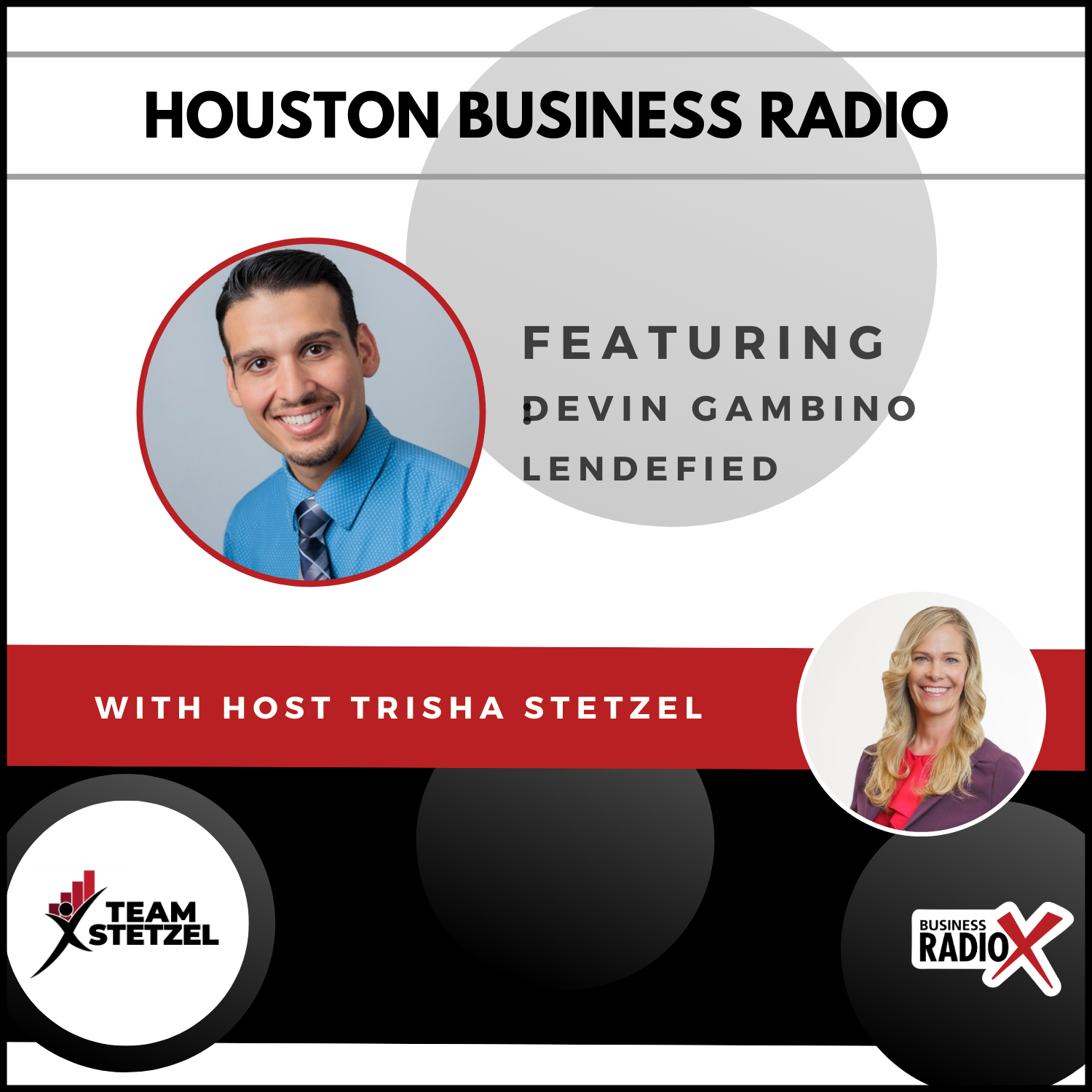
 Devin Gambino is a proud husband, father, and trusted partner to business owners seeking clarity, structure, and growth. As an approved and verified Fractional CFO provider by Visa, Devin has spent over a decade helping entrepreneurs master their numbers, scale with confidence, and build businesses that support both financial freedom and personal fulfillment.
Devin Gambino is a proud husband, father, and trusted partner to business owners seeking clarity, structure, and growth. As an approved and verified Fractional CFO provider by Visa, Devin has spent over a decade helping entrepreneurs master their numbers, scale with confidence, and build businesses that support both financial freedom and personal fulfillment.
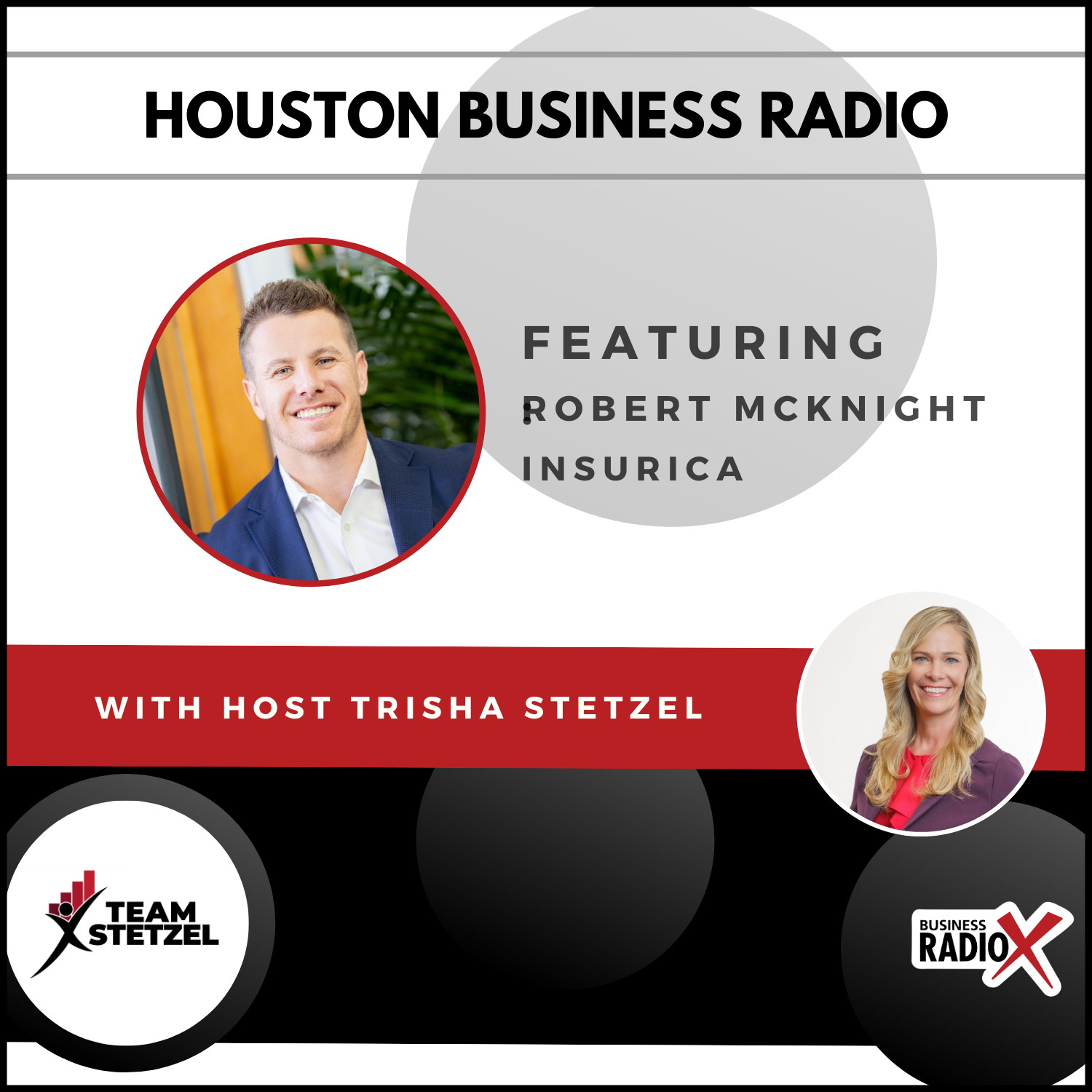

 Robert McKnight is a seasoned commercial insurance specialist with nearly a decade of experience serving the real estate and construction industries.
Robert McKnight is a seasoned commercial insurance specialist with nearly a decade of experience serving the real estate and construction industries.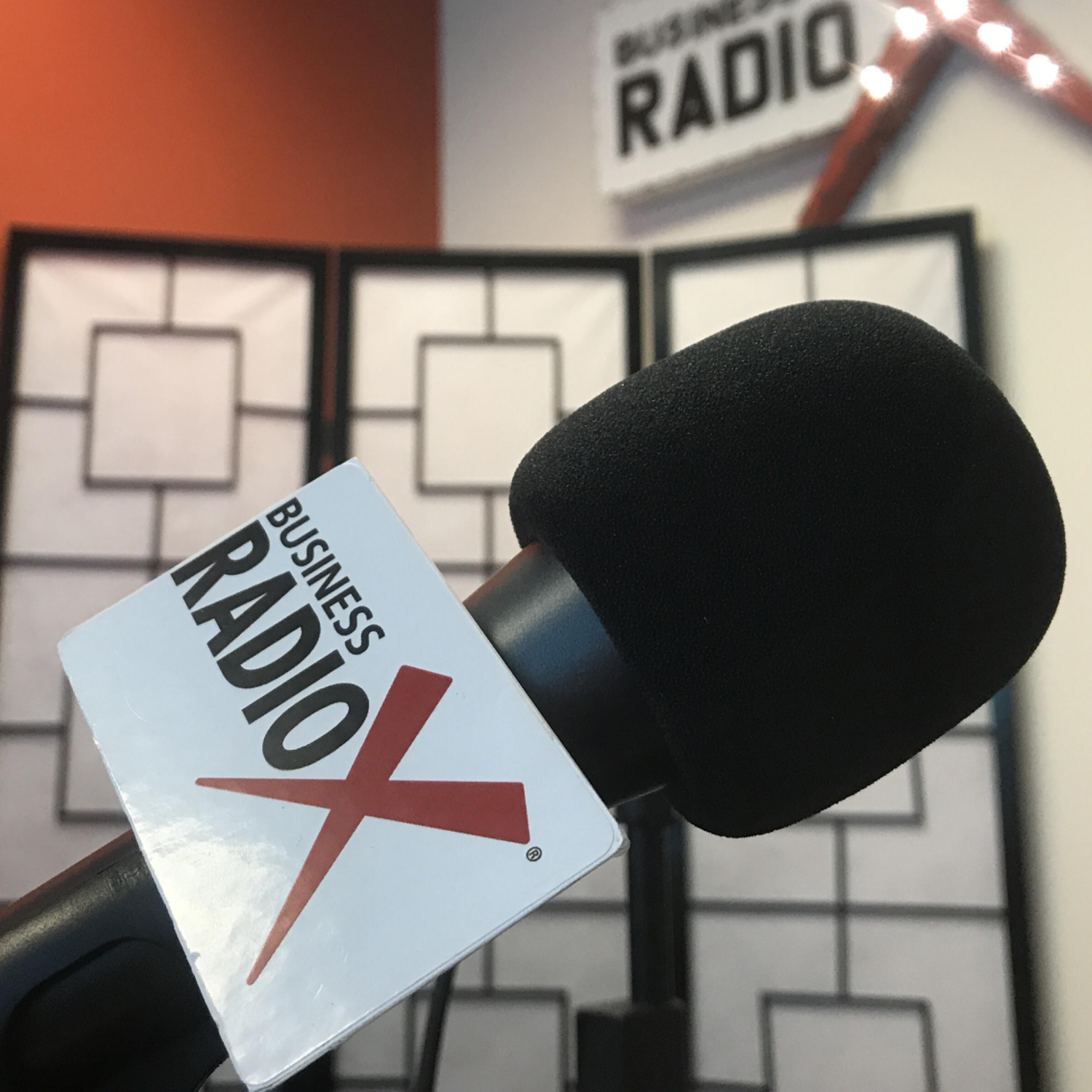

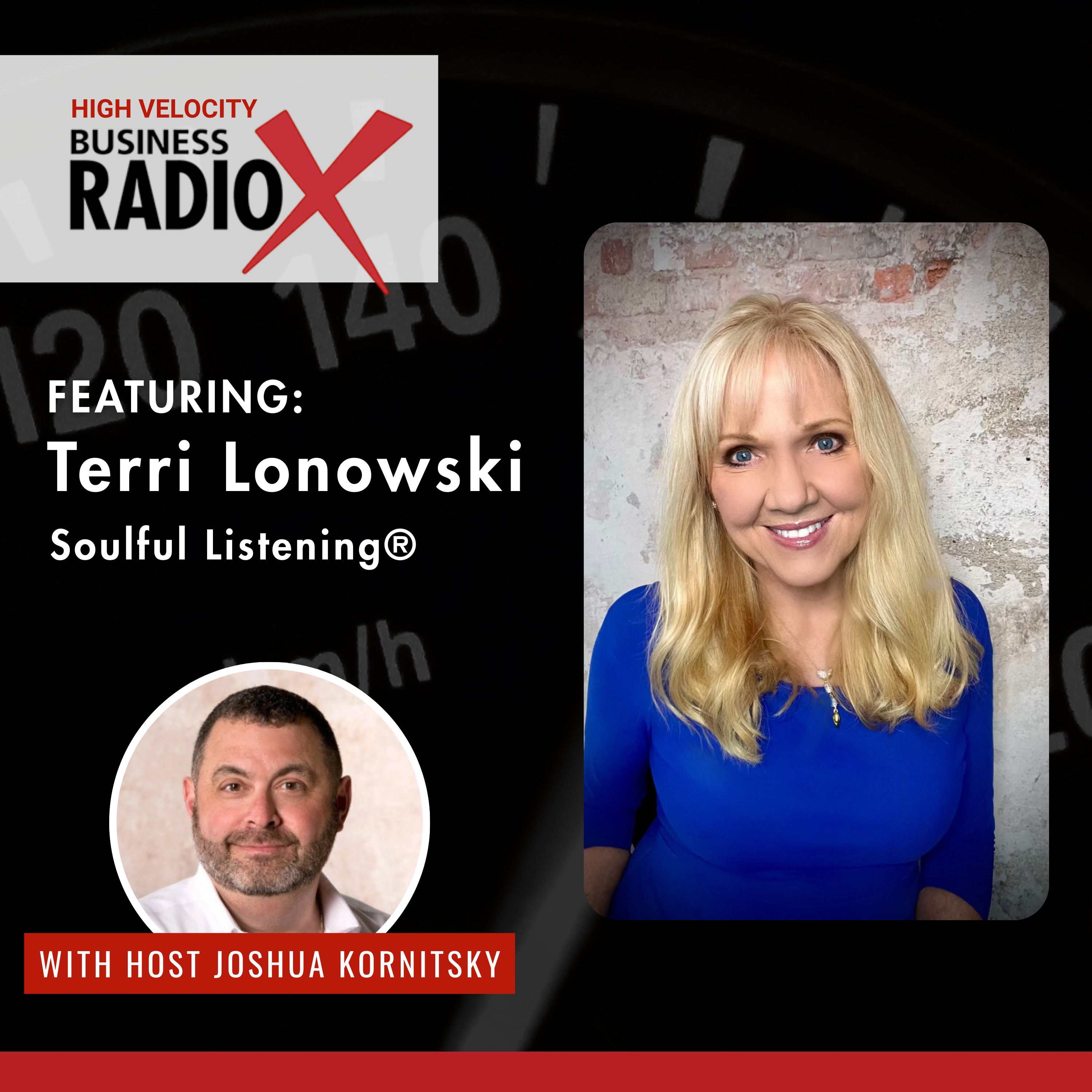
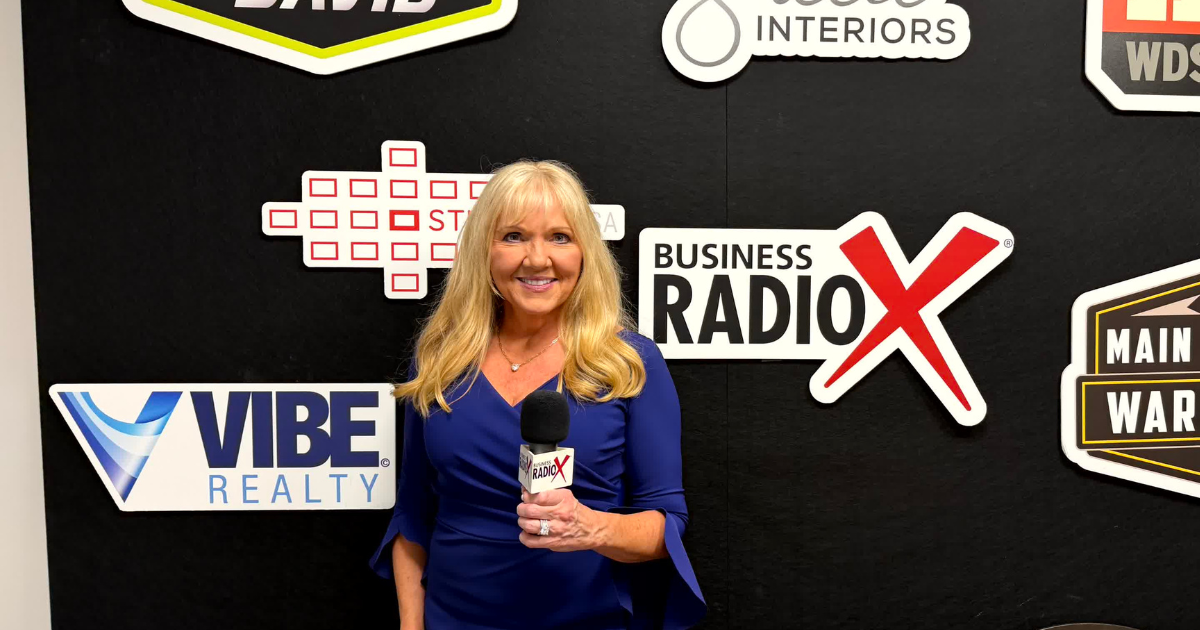

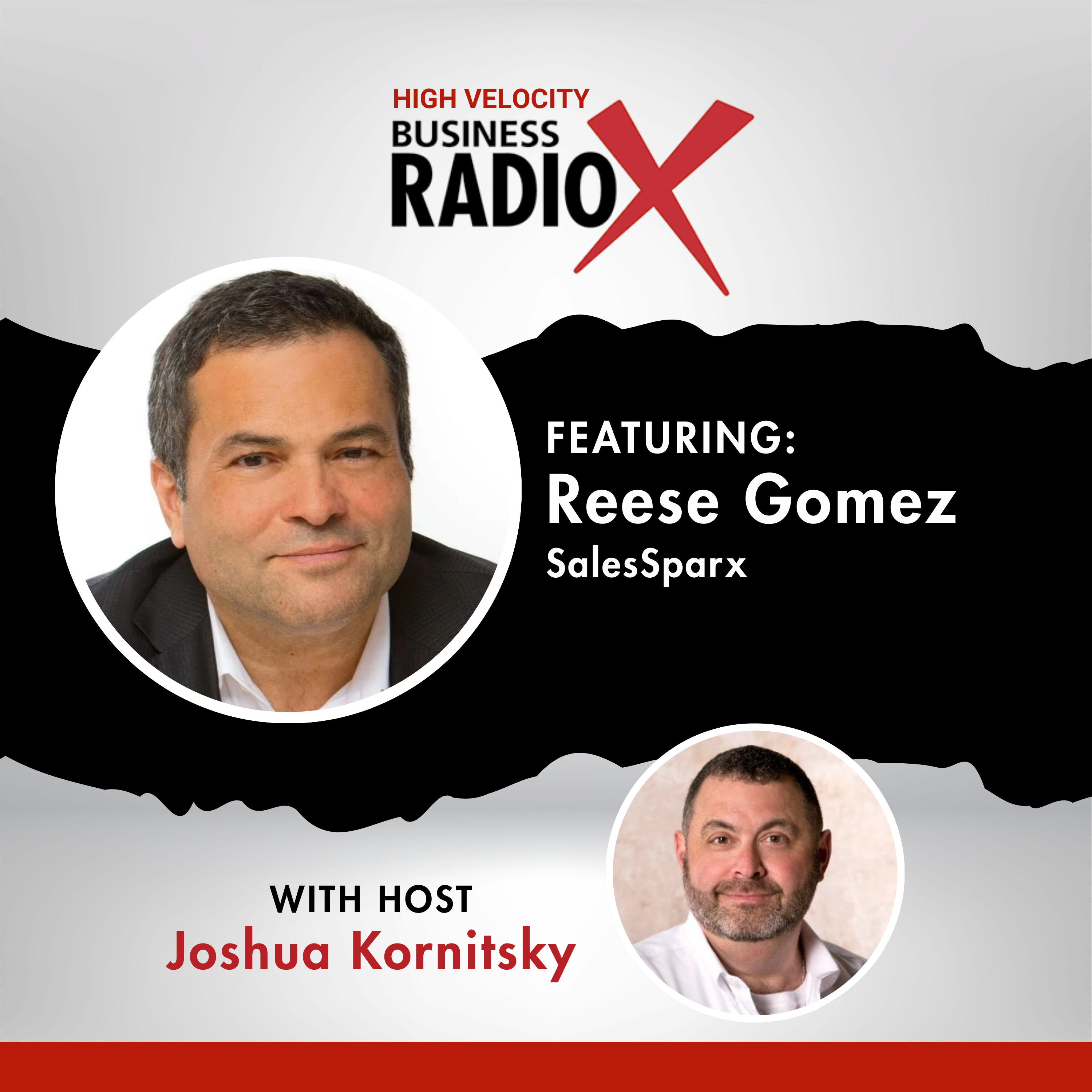
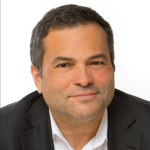 Reese Gomez is the Founder and CEO of
Reese Gomez is the Founder and CEO of 
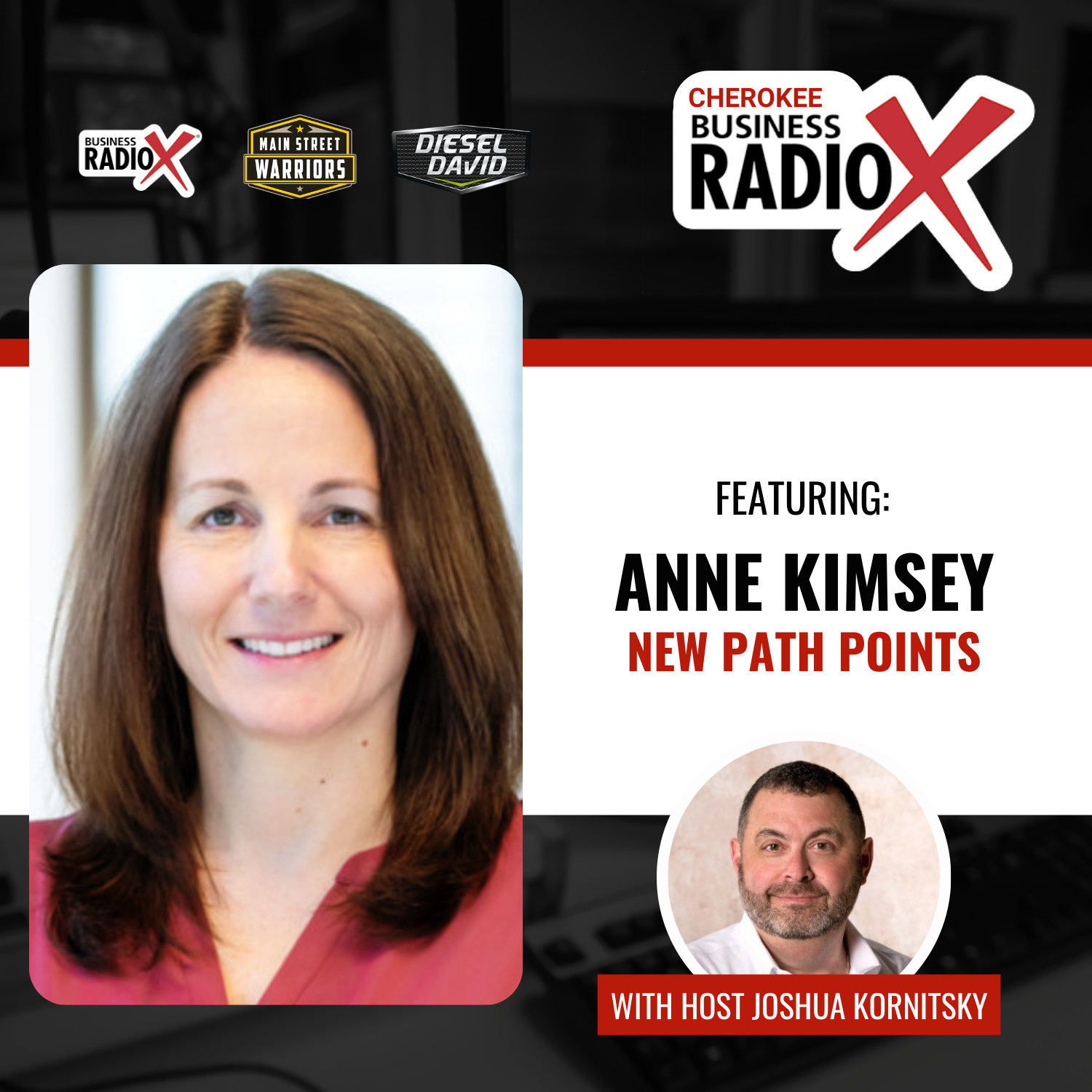


 Anne Kimsey is the founder of New Path Points, a consulting firm that helps companies navigate complex transitions, specifically system rollouts and post-M&A integrations.
Anne Kimsey is the founder of New Path Points, a consulting firm that helps companies navigate complex transitions, specifically system rollouts and post-M&A integrations.













